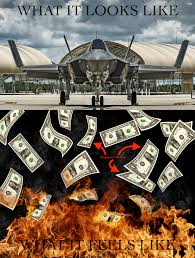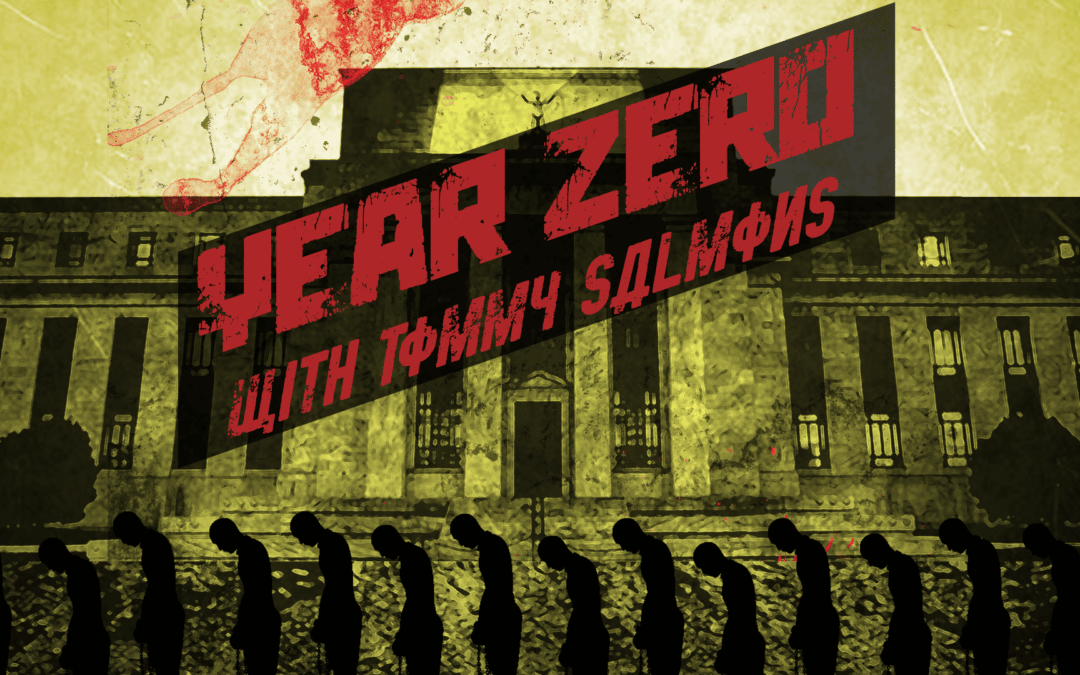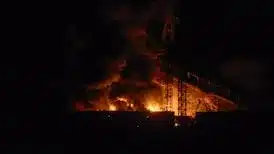Money has less value than it’s ever had, and yet to sell out is an open goal. We have become accustomed to being lied to, not just from politicians but the celebrities who compete for our attention online. They use their platforms as infomercials or to advertise scams. Charlatans to grift, whether as ‘content creator’ or gatekeeping podcaster using the platform to push products and guests. Marketing tends to ruin everything and even though we are often adverse to it, for some reason it still seems to be profitable. Those who have established themselves as a person with principles or a certain character, are now unashamedly bought. To be a sell out seems to be the ambition, it’s generally revered and for many its the goal.
Those who enter politics or government itself, have a tendency to do so because the exposure and position of power and authority provides them with a golden parachute whether in the form of speaker fees, book deals, consultation gigs, board positions or another career in the industries regulated. Not to mention the perks of being in government itself from pay, pensions and access to benefits reserved only for the Neo-aristorcats of the planned society. It’s not unique to any particular culture or ideological sect of government. It tends to be universal. Then there is the obvious and covert forms of corruption. It’s generally accepted by most that public servants and politicians are not to be trusted or are corrupt, unless off course those public officials satisfy ideological or bigoted needs. They then go from effigy, to saviour. Regardless of scandals.
Blind spots are common, those who celebrate the free markets will look the other way when Javier Milei of Argentina promotes a scam crypto coin from his position of fame and political credibility. The $LIBRA cyrptocurrency scandal did little to damage him among his supporters. Those in the libertarian community need him to be above controversy so omitting flaws becomes another aspect of politics. Not to mention his excessive affection for Israel and other foreign policy positions akin to imperialism and gangster capitalism.
The MAGA crowd generally can not see any flaws with Herr Trump or his family. Any scandal from his flip flopping on the Jeffrey Epstein affair to pushing his own memecoin is not considered a flaw or self serving. Instead it’s ignored or fractures the movement to a degree, those who challenge the adapted narrative becoming apostates. Podcasters and people within the second Trump regime made their careers and considerable fame-wealth at the expense of the Epstein victims and are now culpable in massaging the new narrative or redirecting the scandal to better suit the Trump position.
The imperial Roman act of parading a captured head of state through the streets, as a public trophy is not an act to turn the stomach, instead it’s celebrated with jingoistic delight, even by those who claimed to deplore foreign interventions. The Gringo never left the Americas, it’s nothing new for those South of the Rio Grande, just a modern incarnation of arrogant exceptionalism.
And, the left of politics. The “anti-capitalists” have discovered one can sip champagne rather comfortably as a socialist. It’s a profitable and wealthy endeavour to critique capitalism, to make money from the anti stance is the ultimate expression of capitalism. Not to mention the materially obsessed government policies infected by left inclined political animals, only concerned with money, whose, and where it should go. None live with Maoist modesty, or exemplify a life of humble material living. To the post modernist corporations who see everything as capital growth, the destruction and adaption of innovation and creativity into slop for shareholders, all under the facade of sado-masochistic self hate, a theatre for morons or those with no dignity who like to play make believe Marxist with a fifteen dollar coffee in hand, on their way to a boardroom of lies.
The martial arts and combat sports spectrum has never been free of con artists or supposedly credible authorities, selling belts or endorsements to charlatans. At present the Jiu Jitsu and MMA realm has profitedfrom Derek Moneyberg, a wealth coach and former male date rape adviser. The wealthy Moneyberg has thrown his money around by ‘earning’ a black belt in Brazilian Jiu Jitsu faster than most of the arts own legends. Desperate to become a profitable podcaster, content creator, Moneyberg has hired the legends of combat sports as co-hosts to help elevate his show, and status. It’s a razor thin ploy, awkwardly disingenuous but the legends sit alongside him with the straight face of a hired mercenary and agree to go along with the hours John. And John, Moneyberg is. He moves with his hired bodies with the grace of a man inadequate and desperate to climax, they will praise him for his abilities, attributes and manhood. Once the soiled rashguard is removed, they return to their lives well paid. Moneyberg is gratified, happy he spent the money.
Honour and respect are words often thrown around in the martial arts. In writing my recent book, I can contrast the revered community to that of pornography and sex work. I feel honour and respect are better suited to those industries. Where rankings are not so easily purchased or sexual indignities concealed, only to be a content creators delight when those involved in the scandal are no longer needed. Aesthetics and myths are important to the stories we all tell ourselves, the martial arts world is no different, honour is a word whispered while the sweat from Moneyberg’s brow fills the mouth.
Jack Shields, the former UFC star and elite fighter, has become an online content creator delving into political commentary, in doing so he won followers among the alt-right and contrarian sphere. It was Shields who promoted Moneyberg and helped him to find contacts among the MMA and BJJ community. Despite Shields being an apparent honest broker in his content creation, a pay day is a pay day and Moneyberg is a big payday. Craig Jones and Sean Strickland have called out the Moneyberg grift and those who have claimed his martial arts abilities as legitimate. Moneybefg is a clear and present example, beneath him lies thousands of others who use position and wealth to purchase credentials because it suits the franchise’ holder of the martial art or because. “bills need to be paid.”
The online platforms of social media have given prominence to many, Jordan Peterson rose to fame due to his dignified stance on C-16 and the dangers of such laws when it came to free speech. He then went on to become a distant daddy for numerous listless men and women who needed to hear about personal accountability while being introduced to philosophical principles that Peterson had been good for. It was only once he had become a product, that his fame and self interest meandered into a destructive cycle which saw him twist into his version of anti-free speech. His inconsistencies revolved around an inability to deal with online trolls he disagreed with along with shilling for nations and factions despite his claimed principles. His personal self destruction was an intimate expose into a man, who is very much human but, as a human was never a saviour or pillar he had been entrusted into such a role by so many in need.
Is it that podcast downloads and social media follows validate a persons status as a wise and trusted voice. Even if they are an Andrew Tate, Mr Beast or a Thothouse contestant? Kim Kardasian did very little to become a mega celebrity, transcending even Paris Hilton as far as socialite, nepotistic icons gp. To be fucked, record it and have a mumanger with vested interest steer a career and brand to mega wealth and fame was rather all too easy. For her. Or, is it that for some, over time the ascending download and follower numbers twists a person into a brand, where marketing concerns and populism messaging becomes important. Or, at the very least to push for more, of the same inside of a particular niche in need of it’s own identity or contrarian contrarianism, which tends to lead to some form of establishment acceptance and capitalist ambition.
Musicians are often accused of selling out, whether this is a fair declaration or just petty fan resentment. The criticism can vary. The starving artist tends to suit fans who like knowing that the creator they admire comes from the dirt and continues to struggles from gig to gig. Should, they ascend poverty or the struggle they risk being unfairly accused of ‘sell out’. Making money or signing contracts with big corporations can defy the apparent messaging of some artists, especially those in alternative and anti-establishment niches. Then there are those such as Rage Against The Machine, who sold out their principles. Going from anti-establishment Generation X to establishment corporate-government rock.
In fact, we can perhaps condemn most of Gen X for being sellouts. It was the generation that went from wariness to, pushing on it’s kids the importance of getting a good PAYING job. Not to be a good person, or to do good. Income. That was all that mattered, be wealthy. Nothing else matters. This means grift, corporate and government gigs. The hippies went home and became boomers with pensions, their kids went onto the lie themselves to sleep at night, bad asses in silk sheets. Rebellion was always going to be washed away with each interest payment on the mortgage.
For the boomers and before, there was at least a naive pragmatism and belief in fixing the system from within or using politics to change or that academia may steer for good. To influence government and corporations to ‘fix the world’. Whatever the lies told to themselves as they lived in relative comfort is a seduction that transcended youthful dignities, or naivete. It was for Gen X to express with cynicism and a middle finger to that which their parents had lied themselves into, a defiance of government and corporate shilling and careerism, only to descend into the worse form of their parents. As a generation, they knew better, their culture was set around these principles and expressed itself as such, until they settled into the suburbs, invested in real estate, bellies swelled inside of suits and lied themselves to sleep each night. They were not selling out, but buying in, went the bullshit story told. They are also the generation along with their parents baffled by the AI slop which media had spanned their generation preparing them for.
To sell out is lauded. Whether it’s to sell NFT’s to the non-stop stream of shitcoins or Labubu Dolls or whatever the running junk happens to be. People will use their fame and trusted credibility to shill for things they do not believe in, simply because the marketing agency they have been signed with is contracted to do so, or because they can make a lot of money from it. In this age, when comedians don’t actually make people laugh, rather they tweet obsessivelyor have podcasts, many of them have delved into politics and become social commentators with less skill than predecessors such as George Carlin, Patrice O’Neil or Bill Hicks had. But online platforms helps them to sell anything, other than tickets to their shows.
Many of these comedians were prominent voices in the ‘free speech’ domain, some more consistent than others. While also laughing and commentating on the nature of power and the dangers of government controls in the extremes. Some were ardently vocal about the conspiracies around Jeffrey Epstein, only to switch away when it suited them and their base of fans. While others were willing to go to Saudi Arabia to perform in a known human rights violation kingdom. Taking the money of the Saudi regime, while agreeing to the terms stipulated the comedians made the privileged ranks of Saudi society laugh. Some may argue, this would be no different than performing at the White House or any other government responsible for the murder of the innocent. Then again, the Gulf regimes have invested in sports and entertainment as means of washing the blood from their sands and promote themselves as cultural hot spots.
It is no different than the dictatorship of the Zaire, or Philippines hosting Muhammad Ali in his respective title fights. Or, any other nefarious nation state putting up it’s populations money for boxers to compete and have the new technology of satellite fed access to American homes. Then again, around this time the USA was bombing millions of innocent people in South East Asia. Must all be a political statement? I suppose if it is the regime itself hosting the event, rather than Madison Square Guardians, then it stands to reason it does.
The danger of online culture is that it breeds an insincerity. Fame is achieved through the unseen backing of corporations or governments that help to elevate viral people-brands into importance. While others may achieve fame and status based on followers because they timed it well, got lucky, or started early. Mr Beast to Huaktuah found viracy which attracted the backers to them, in order to profit from their brands and to use them to sell products, content or crypto. An intellect who works hard in the real world, with a small social media following would not gain the credibility of a Destiny who has shilled his way into online prominence and now is invited to debate and speak on things. His sole credibility being that he is famous, for being online, now the Starcraft II reviewer is a great mind to debate or have as a guest. Giving rise to the fame for fame sake political contrarians such as Nick Fuentes, whose shtick of being deplatformed only seems to see him climb onto more platforms, to be a virgin on all subjects but as the comment sections show, virginal expertise is what makes for a celebrity voice.
Depth of character and the nuance of reputation are not as apparent through the digital keyhole. We are told who to follow and have content pushed by algorithms. An example is the claim the Israeli government is paying influencers of a certain size to make positive posts about the genocide, or anti-Palestinian posts. This is not unique to Israel as other nations and political movements have paid for the influence of those who are called influencers. Those who seek fame, do so because it profits them. Very rarely do they do so for noble and righteous reasons, and generally if they claim to, that’s part of how they market and brand themselves. With the death of critical thinking and the shortening of attention spans, along with AI slop and agents the problem will only get worse. To be a sell out is mostly understood as a good or accepted as a pragmatic measure. And if one goes too far, it is ‘cringe’, this is then not good. And those sell outwell are rewarded, not only by those paying them but also the wider public who may aspire to sell out themselves or simply don’t care to pay attention, so long as their feed, continues to feed them what the attention seekers provide.













